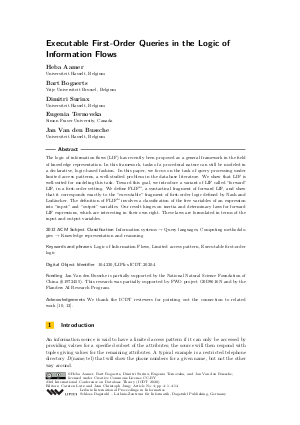LIPIcs.ICDT.2020.4.pdf
- Filesize: 453 kB
- 14 pages

 Creative Commons Attribution 3.0 Unported license
Creative Commons Attribution 3.0 Unported license




















Feedback for Dagstuhl Publishing